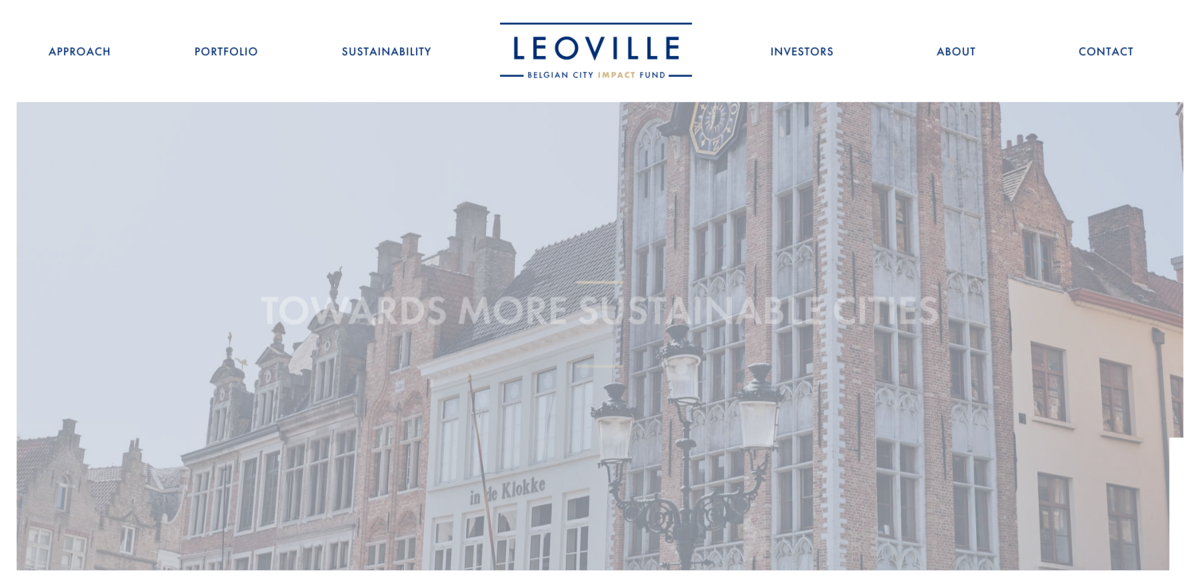What is Leoville?
Leoville is a real estate fund that’s not just profitable but also dynamic and socially responsible. It’s all about making the capital grow while having a positive impact on society and the environment. With a portfolio boasting over 70 renovated mixed-use buildings right in Belgium’s most sought-after urban neighborhoods, Leoville invests in renewing city centers. And the best part? It offers one of the best returns on investment in the market. So, it’s a win-win: financial growth and meaningful urban renewal.
Main Benefits of Leoville
Leoville’s value creation speaks volumes:
- 70 mixed-assets under management
- Properties located in top urban locations
- 50% of assets are in listed heritage areas
- 100% eco-friendly buildings after renovation
These numbers highlight a solid foundation for both financial and social returns.
Why Invest in Mixed-Use Urban Real Estate?
Investing in real estate only makes sense when the money goes to the right places. Leoville focuses on mixed-use properties—think residential spaces combined with convenience stores—right in the heart of cities. This approach is backed by a smart diversification strategy. The goal? To bring the best of Belgium’s city centers to investors and residents alike.
By 2050, nearly 70% of the world’s population will live in cities, up from 55% today. That means city centers have huge potential for capital gains. Plus, cities tend to be more resilient when the real estate market gets shaky, offering better chances for reallocating assets and maintaining high building values.
Adapting to Market and Lifestyle Changes
Belgium’s major cities are constantly evolving—thanks to changing lifestyles, new residents, tourists, and expatriates. This dynamic environment keeps the market lively and responsive. Residential tenants are more demanding than ever, seeking quality housing close to services, shops, and transport. This strong demand also affects commercial tenants, with new profiles like fast casual food outlets, opticians, and telecom shops looking for premium, modular, small commercial spaces to serve a targeted clientele.
Leoville’s Approach: Profitability, Dynamism, and Diversification
Leoville Holding acts as a feeder fund for a specialized real estate investment fund (FIIS/GVBS). It acquires properties in high-street, tourist-heavy, and dense urban areas, converting them into modern, eco-friendly apartments and small commercial spaces ranging from 50 to 250m².
With dozens of transactions underway and a dozen construction sites active, Leoville’s team—made up of architects, lawyers, financial experts, and project managers—works dynamically to maximize each property’s value. From buying and selling assets to renovations and tenant selection, every detail is managed with care.
Diversification is key. The portfolio covers mixed-use assets spread geographically and across sectors. Each tenant represents 5% or less of a building’s rental income, ensuring resilience and flexibility to adapt to market shifts.
Leoville’s Impact on Sustainable Urban Development
- Supports Sustainable Development Goal (SDG) 11: Sustainable Cities and Communities
- Contributes to SDG 7: Affordable and Clean Energy through energy-efficient buildings
- Promotes SDG 13: Climate Action by reducing carbon emissions via renovations
- Encourages SDG 8: Decent Work and Economic Growth through job creation in renovation projects
- Preserves cultural heritage aligning with SDG 15: Life on Land
Enhancing Historical Heritage and Urban Life
Many of Leoville’s projects involve emblematic buildings—often UNESCO-listed or located in heritage areas—that were previously in poor condition or underused. By renovating historic façades and rehabilitating unused upper floors, Leoville breathes new life into these architectural treasures. This not only preserves cultural heritage but also contributes to vibrant, sustainable city centers.
Post-renovation, buildings achieve top-tier energy performance ratings (EPC A or B) and boast a mobiscore close to 10/10, meaning excellent accessibility. These upgrades reduce the ecological footprint and encourage people to return to city centers, supporting local economies and creating jobs. It’s about more than just buildings—it’s about shaping the future of urban living.


















